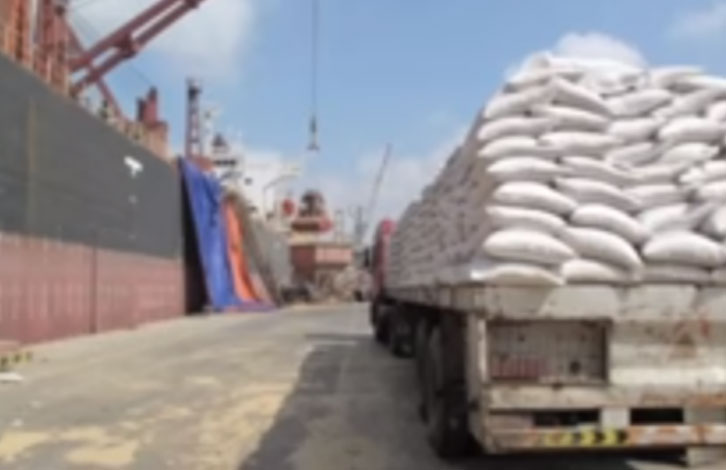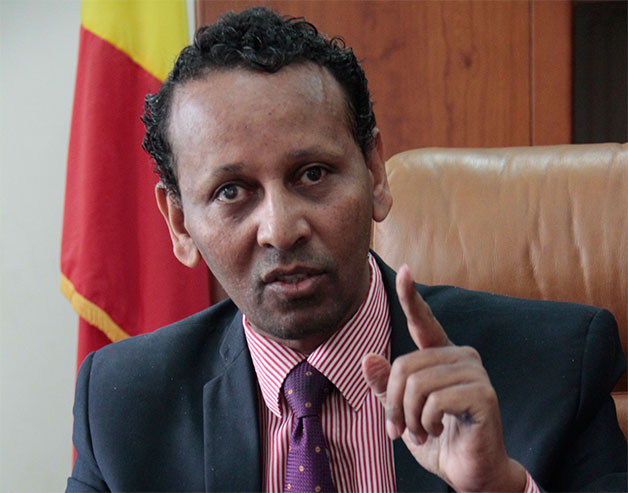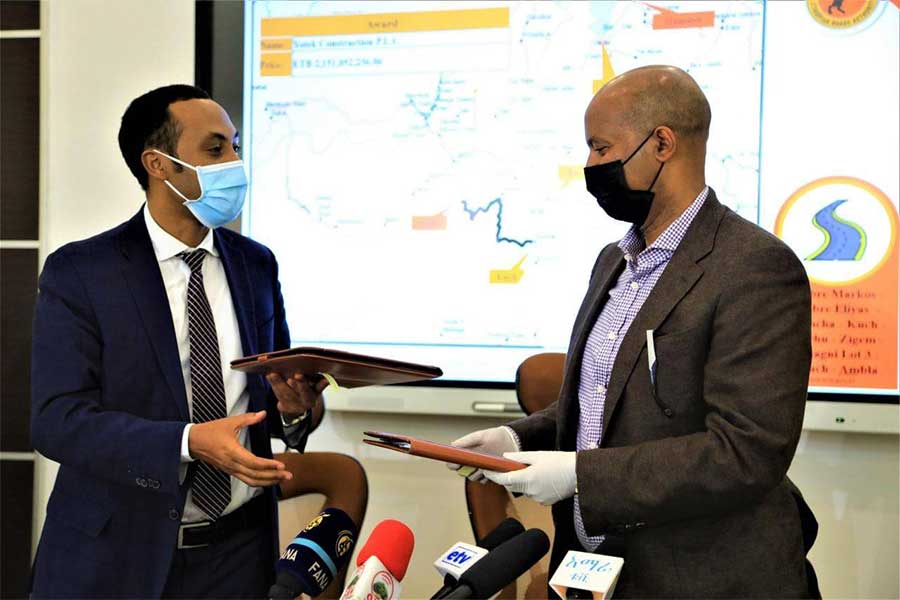
Fortune News | Apr 20,2019
The absence of benzene has reached its crescendo in Hawassa City, compelling officials at the city Trade & Market Development Bureau to alternate the days where drivers fill up their tanks based on their license plate numbers.
Vehicles with an even digit at the end of their license plate get service on one day while those with an odd digit fill up their tank the next.
Belaynesh Geda, head of the Hawasa Trade & Market Development Bureau, attributes the scarcity to the quota allocation that does not consider the demand for benzene.
According to Belaynesh, only four stations administered by big companies are getting ample supply while the rest are deemed to have one tank trailer with a capacity of 56,000ltr per station every three months.
She said the 18 gas stations in the city are burdened to provide services to five surrounding towns with no fuel stations. The boats on the Hawasa Lake and over 30 horticulture farms are also heavily dependent on benzene.
Experts at the Bureau conducted a study which put the monthly benzene demand of Hawassa city at 784,000ltr.
The Communication Head at the Ethiopian Fuel & Energy Authority (EPEA), Bekelech Kuma, acknowledges the lack of a robust administrative system to control the black market where benzene is transacted beyond the retail price set by the Authority. She concurs a large demand from users has created a gap.
According to Bekelech, alternating the plate numbers is a short-term plan to regulate the situation while the Authority is working with the regional Trade Bureau to develop a long-term plan.
Managers at the gas station raise logistic issues as another challenge.
Abebe Demisew, manager at one of Total Energies fuel stations, ascribes the protracted supply to road security besides the quota allocations. He said they are often unaware of delivery time despite making payments in advance.
The long queues have made drivers turn to the parallel market with the ever-increasing price.
Biniyam Birhanu, a motorcycle owner who runs his own business, refuels his tank with a 10ltr capacity every couple of weeks.
He said the hustle at the stations is further exacerbated following the introduction of the digital fuel payment system and the awareness gap from the drivers' side. Although Biniyam pays double the legal tariff on the black market, he prefers to spend more money than waiting in the long line.
"It's been a while since I visited the gas stations," said Biniyam.
The scarcity has disrupted transport flow as small vans and motorcycles which are among the primary public transport service providers, spend hours to get fuel.
Metiso Kimo is a small van owner, who has been a public transport service provider for the past five years. He claims his livelihood is impacted by the hustle as he spends most of the day in the queue.
“Activities subside by the time I fill up the fuel tank,” he told Fortune.
He is compelled to buy two litres of benzene for 220 Br from the black market, double the retail price, to avoid the long queues.
Logistics experts ascribe a lack of synergy between stakeholders in the supply chain as the significant factor casting its shadow on providing goods and services.
Desalegn Yihune, logistics and supply chain management lecturer at Gonder University argues inadequate regulation and administration is with the supply of goods and services. He said more most of the problems stemmed from noncohesion and ineffective assessments made about the market.
The expert recommends that competent personnel operate digital fuel payment systems to get the best out of the services.
"Timely demand mapping is pivotal to instil adequate service provision," Desalegn told Fortune.
Officials at Hawassa Trade Bureau were optimistic about the introduction of a nationwide mandatory fuel payment system a fortnight ago to map the city's demand, besides controlling the distribution and transactions. However, the system has not yet been applicable to trace and record distribution in the city.
"We're still using manual efforts to control illicit activities," Belaynesh told Fortune.
Drivers queuing up at one of the gas stations near Hawassa University's techno campus.
PUBLISHED ON
May 20,2023 [ VOL
24 , NO
1203]

Fortune News | Apr 20,2019

Radar | May 12,2024

Radar | Mar 09,2019

Fortune News | Apr 13,2019

Editorial | Sep 14,2024

Fortune News | Feb 06,2021

Radar | Oct 12,2024

Viewpoints | May 20,2023

Commentaries | Jan 25,2020

Fortune News | Nov 29,2020

Dec 22 , 2024 . By TIZITA SHEWAFERAW
Charged with transforming colossal state-owned enterprises into modern and competitiv...

Aug 18 , 2024 . By AKSAH ITALO
Although predictable Yonas Zerihun's job in the ride-hailing service is not immune to...

Jul 28 , 2024 . By TIZITA SHEWAFERAW
Unhabitual, perhaps too many, Samuel Gebreyohannes, 38, used to occasionally enjoy a couple of beers at breakfast. However, he recently swit...

Jul 13 , 2024 . By AKSAH ITALO
Investors who rely on tractors, trucks, and field vehicles for commuting, transporting commodities, and f...

Oct 18 , 2025
The political establishment, notably the ruling party and its top brass, has become p...

Oct 11 , 2025
Ladislas Farago, a roving Associated Press (AP) correspondent, arrived in Ethiopia in...

Oct 4 , 2025
Eyob Tekalegn (PhD) had been in the Governor's chair for only weeks when, on Septembe...

Sep 27 , 2025
Four years into an experiment with “shock therapy” in education, the national moo...